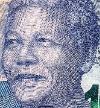Junk reprieve strengthens rand after GDP news hurts currency
8 June 2016
Cape Town – The quick succession of news that South Africa’s economy shrunk by 1.2% in the first quarter of 2016 followed by news that ratings agency Fitch had spared the country from junk status sent the rand on a quick roller-coaster ride.
“The GDP number was worse than expected with the usual suspects of mining and agriculture being the hardest hit,” explained currency expert Adam Phillips of Umkhulu Consulting. “I think we all felt the first quarter would be hard, but the figures are very poor.”
“Within minutes, Fitch kept our rating and stayed with stable rather than go to negative,” Phillips told Fin24.
“There was a move up to R14.99/$ on the GDP number, but the Fitch news has allowed it to come back to 14.85,” he said at 12:50 on Wednesday.
Fitch affirmed South Africa’s foreign investment grade credit at 'BBB-' and surprisingly kept its outlook stable, but it warned that political and growth concerns should be addressed.
Stats SA said mining and quarrying fell to -18.1%, which was the main cause of the 1.2% contraction in the gross domestic product (GDP), which was "worse than the markets expected", according to Nedbank.
"The economy will struggle to grow in 2016 but it is expected to expand by 1 % in 2017," it said.
“Commodities, oil and steady offshore equity markets have also helped,” Phillips said. “Finance Minister Pravin Gordhan was talking earlier and I think everyone is in agreement with what he stated, that it is now time to do something about the economy and not just say what we are going to."
Gordhan said negativity towards emerging markets created chaos in the markets, which didn't help South Africa. Their negativity "dilutes and exacerbates in very quick succession," he said. "The changing mood doesn’t help us."
“What would help is if the political heat could be dialled down,” Phillips said. “In front of the local elections, I am not sure that is possible.”
“Can we stay in the high R14s/$? There must be a good chance, but don't look for too much strength.”
Economist Mike Schüssler told Fin24 on Wednesday that he thinks the Fitch decision to keep its outlook stable shows SA did the public relations game well by talking to the agencies.
In Schüssler's view, SA now has more than six months to work a lot harder at economic growth. However, at the moment that hard work has not been done yet.
Fin24 labour expert Terry Bell told Fin24 that news of the economic contraction was not good for the already struggling poor in South Africa.
“The news comes off ever increasing fuel prices, food inflation and unemployment rates,” he said.
“The food prices have risen faster than increases in social grants. So the child support grant, which went up R20 per month, has fallen behind by more than R50 in terms of the increase in the food price.
“It costs more than R570 a month to provide a nutritionally adequate diet for a young child. The child grants currently stands at R350 a month.”
Responding to news that Fitch did not downgrade SA to junk status, Robert Jeffrey, managing director and senior economist at Johannesburg-based advisory service Econometrix, said “It’s great news.”
“It will help stabilise the markets. It diminishes the chances of a downgrade in December, but the country will still have to implement measures to fix the economy and boost growth.”
This article first appeared on Fin24, see here.
![]()

